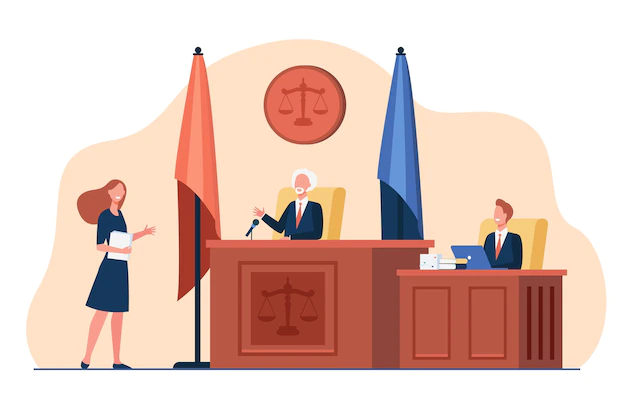It’s time to pull out your best pitch and get ready for a text recruiting campaign! Do you know that businesses that focus and optimize their omnichannel recruitment and marketing can gain up to a 9,5% annual revenue growth? So if your recruiting team is looking to expand your reach with SMS recruiting, now’s the time to do it.
However, with the popularity boom of cellphones and smartphones comes the laws to govern their operation. Breaking them can bring dire consequences. To conduct legally compliant SMS recruiting campaigns, let’s dive into some of the most common text recruiting laws.
Knowing the Laws
Each country has its version of text messaging laws. However, keen readers will notice that most of them revolve heavily around the concept of ‘User Consent.’
1. United States: TCPA + CTIA Compliance

TCPA (Telephone Consumer Protection Act)
Passed in 1991, the TCPA was originally designed to protect consumers from intrusive robocalls and unsolicited messages. It has since evolved to cover modern communication channels, including SMS recruiting.
A key update came in 2015 through a Declaratory Ruling by the FCC, which clarified how the TCPA applies to text messages:
-
Consent is mandatory: You cannot send automated texts or pre-recorded calls to mobile phones without prior express written consent.
-
Robocalls and auto-texts are restricted: These are prohibited without consent—even if the contact number was originally a landline and later ported to mobile.
-
Emergency exceptions apply: Situations like fraud alerts or healthcare reminders may bypass consent rules, but they must include opt-out instructions such as “Reply STOP to unsubscribe.”
-
Blocking support is allowed: Carriers may offer tools to block robocalls, with FCC support.
Why does it matter? In 2024 alone, the FCC reported over 24,000 consumer complaints about unwanted robocalls and texts. Violating the TCPA can result in fines of up to $1,500 per unsolicited message.
CTIA Guidelines (Industry Best Practices)
The CTIA (Cellular Telecommunications Industry Association), is the U.S. trade association for wireless communications — maintains a Short Code Monitoring Handbook that most carriers follow. While not legally binding, non-compliance can result in blocked messages or blacklisting.
Best practices include:
-
Secure opt-in via web forms, IVR (interactive voice response), or SMS keyword responses.
-
Keep consent tied to the specific campaign.
-
Clearly disclose message frequency and data rates in your opt-in flow.
-
A candidate texting “JOIN” to your number is considered a valid opt-in. But sending the first message without consent is not.
2. Canada: CASL (Canada’s Anti-Spam Legislation)

Canada enforces one of the world’s most stringent anti-spam laws: CASL, enacted in July 2014. The law governs all commercial electronic messages (CEMs), including SMS, and applies to both domestic and foreign businesses contacting Canadian residents.
What CASL Requires
-
Express consent is the gold standard: Before sending a message, you must obtain clear, affirmative permission. Examples include opt-in checkboxes or SMS signups.
-
Implied consent has limits: You may contact a user if they’ve purchased from you in the past two years or inquired about your services within six months.
-
Proof of consent is required: Businesses must retain records showing when, how, and why consent was obtained.
Legal risk: Violations can lead to penalties of up to $10 million CAD per violation. In 2017, a Canadian company was fined $100,000 for sending CEMs without valid consent documentation.
What Counts as a CEM?
Under CASL, a message is commercial if it encourages a business relationship or transaction—even indirectly. Examples include:
-
Job opportunity texts with application links
-
Event invites promoting a company’s services
-
Reminders with promotional offers
Messages that are purely informational (e.g., location details for an interview) are not considered CEMs.
3. European Union and UK: GDPR Compliance

Under the General Data Protection Regulation (GDPR), a phone number is considered personal data. Any SMS sent for recruiting purposes constitutes data processing, which must be justified by a legal basis.
Under GDPR, using a phone number for outreach qualifies as processing personal data. This triggers strict rules around when and how personal information can be used.
Legal Bases for Contacting Candidates
Recruiters must meet one of the GDPR’s six legal bases for processing data. Two are especially relevant to SMS recruiting:
-
Unambiguous consent: The candidate has clearly agreed to receive communications.
-
Legitimate interest: You have a valid business reason, but only if it doesn’t override the individual’s privacy rights.
Consent is generally the safer path. It must be:
-
Freely given
-
Specific and informed
-
Revocable at any time
Failure to comply can result in fines of up to €20 million or 4% of global revenue, whichever is higher.
The core mission of these regulations is always the protection of individuals from unwanted text messages. To this end, businesses are advised to operate within the law parameters that govern their areas, else suffer damaging consequences. Here are a few reasons why you should not break these laws.
Why Should You Avoid Violating These Laws?
It’s Expensive

As dictated by the TCPA, a business will have to pay up to $500 per violation of a single offense. This amount could increase up to $1500 if a company violates the law willfully. The fine could increase exponentially if that business committed the same mistakes for every lead. The cherry on top when it comes to TCPA is that the law allows for “uncapped statutory damages,” which only worsen the penalty
💡What are Uncapped Statutory Damages? – For the Uninitiated
Statutory damages are amounts of money awarded in a lawsuit that are set by law, rather than calculated based on the actual harm suffered. They’re often used when it’s hard to prove or quantify the real damage, like in copyright infringement or privacy violations.
Uncapped means there’s no upper limit on how much can be awarded. So if a law allows for statutory damages and doesn’t specify a maximum, the court could potentially award a very large amount depending on the case.
They can be a powerful deterrent, especially in cases involving willful misconduct or repeated violations.
So, how expensive can these violations get?

In 2015, Porter Airlines was fined CAD $150,000 for failing to maintain accurate records of consent during its digital campaigns.
Grindr was fined €6.3 million in 2021 for unlawfully sharing user data without valid consent, showing how seriously GDPR violations are taken, even outside traditional marketing.
In the US, creators of the movie Last Ounce of Courage launched an SMS robocall campaign without express consent. They paid $32.4 million in a 2017 TCPA settlement. Violations start at $500 per message, or $1,500 for willful breaches, with uncapped liability via class actions.
It Damages a Business’s Public Image

This one is a no-brainer when it comes to law violations. Whether it is the TCPA, CASL, or the GDPR that governs EU countries, these text marketing and recruiting laws are here to protect the public from the harmful practices of various businesses. An individual can miss an important government announcement because they were smarmed with telemarketing calls or SMSes at the time.
The appearance of the COVID-19 pandemic is keeping the enforcers of these telemarketing laws on edge. Preying on the fear of the Pandemic and relating problems such as the need for vaccines or job shortages, cases of SMS spamming and fraudulent actions through scamming links have rocketed.
So, if a company violated telemarketing laws during their campaign, they are not likely to gain any leads at all. They are bothering their candidates, after all.
Read more on how to improve your company branding by making it more personal
To Conclude
We know the urge to send out thousands of texts is strong. However, please remember that the simple act of sending out your recruiting texts, if not done carefully, can be annoying and disruptive towards your candidates. Following these practices can be a good start in building a thoughtful and civil public image for your company.
Once you are aware of all legal requirements, let’s focus on boosting your SMS recruiting campaign! Check out these eye-opening tips for a successful text recruiting campaign!

Team Rakuna
The Rakuna Team comprises a diverse group of professionals hailing from various corners of the world.
With a passion to enable organizations to hire their next waves of talents, we are dedicated to help organizations stay updated on important recruiting technology and industry best practices.

